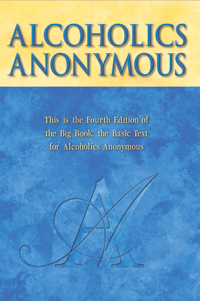

 |
Appendix II - The Spiritual Experience |  |
The terms “spiritual experience” and “spiritual awakening” are used many times in this book which, upon careful reading, shows that the personality change sufficient to bring about recovery from alcoholism has manifested itself among us in many different forms. (Page 567)Here we see spiritual awakening equated with personality change. This phrase implies psychological or secular changes related to thinking, feeling and the like, with no explicit connection to God or a Higher Power. This is consistent with Dr Jung's psychological awakening as described to Roland H. on Page 27.
In the second paragraph, however, the authors write that many readers concluded that "these personality changes, or religious experiences, must be in the nature of sudden and spectacular upheavals." (Page 567, Fourth Edition) The terms 'personality change' and 'religious experience' are used interchangeably here, erasing any distinction between the psychological/secular and spiritual or 'God' elements of awakening.
The next paragraph has this description of an awakening: "[A]n immediate and overwhelming 'God-consciousness' followed at once by a vast change in feeling and outlook." This description implies that the 'God' element is primary, or at least comes first, followed by a psychological change. This is consistent with the authors' description on Page 25 as well as the awakening Bill describes in his own story. Awakenings of this type, "though frequent, are by no means the rule."
Most A.A. members' experiences are said to be of the "educational variety", and develop slowly over time. The term and idea come from William James' Varieties of Religious Experience, which has already been cited on Page 28. This is not unlike Dr. Bob's story, as he does not report having had a sudden awakening. A gradual awakening, or change in the newcomer is consistent with the inclusion of Promises in several of the Steps in the program of recovery that we have seen in Chapters Five and Six. These Promises, some of which are psychological or secular and some of which are spiritual or God-centered, are elements of the awakening that appear at certain stages in the process of recovery. His friends will often notice changes before he does, but finally the newcomer
realizes that he has undergone a profound alteration in his reaction to life; that such a change could hardly have been brought about by himself alone. What often takes place in a few months could seldom have been accom- plished by years of self-discipline. (Page 567)This once again conforms to Jung's secular type of awakening. That this change cannot be brought about by the newcomer's efforts alone is not explicitly stated in either of the two earlier definitions of the spiritual awakening on Pages 25 and 27.
The authors continue:
With few exceptions our members find that they have tapped an unsuspected inner resource which they presently identify with their own conception of a Power greater than themselves.Under this scenario a personality change comes first, followed by awareness of a Power that brought it about. The change in thinking and this awareness, called 'God-consciousness' by many, are thus seen as separate elements. The awareness of God causing a change of which we are incapable reminds us of last of the Ninth Step Promises, the culmination of the spiritual awakening. This is the only one in that set of twelve Promises to mention God: The other eleven are entirely psychological or secular.Most of us think this awareness of a Power greater than ourselves is the essence of spiritual experience. Our more religious members call it 'God-consciousness'" (Page 567-568)
In all of the descriptions of the spiritual awakening found here and elsewhere in the Big Book, a pattern is apparent: We sometimes see awakening described in purely psychological terms, and sometimes using both psychological and spiritual terms. But the awakening is never described solely in God-centered terms. Therefore, the secular or psychological element is the universal characteristic of all awakenings described in the Big Book, and is sometimes accompanied by 'God-consciousness' or other spiritual effects.
The authors conclude with a strong plea for an open mind not unlike that we have seen in We Agnostics, culminating in this italicized sentence: "Willingness, honesty and openmindedness are the essentials of recovery. But these are indispensable." (Page 568) These qualities are mentioned in numerous places in the literature, but this is the only time all three appear together.
Capping off the plea for openmindedness, the authors quote a well-known saying of Nineteenth Century philosopher and agnostic Herbert Spencer:
“There is a principle which is a bar against all informa - tion, which is proof against all arguments and which can- not fail to keep a man in everlasting ignorance— that principle is contempt prior to investigation.” —Herbert Spencer (Page 568)